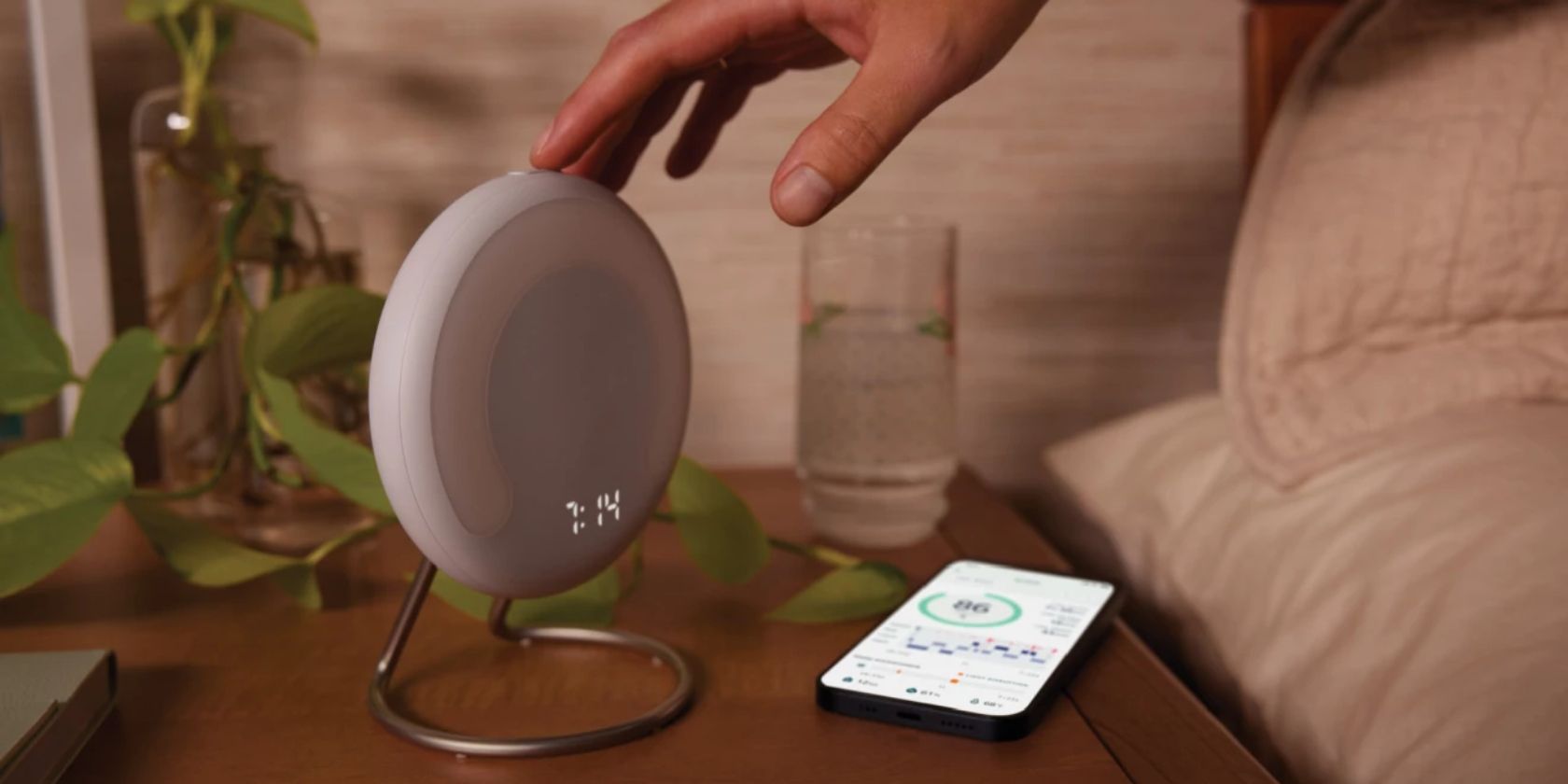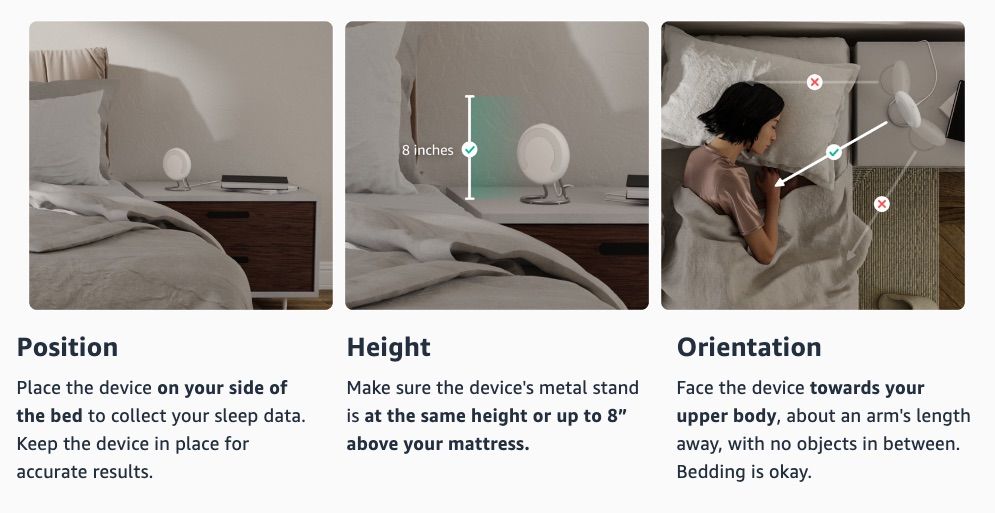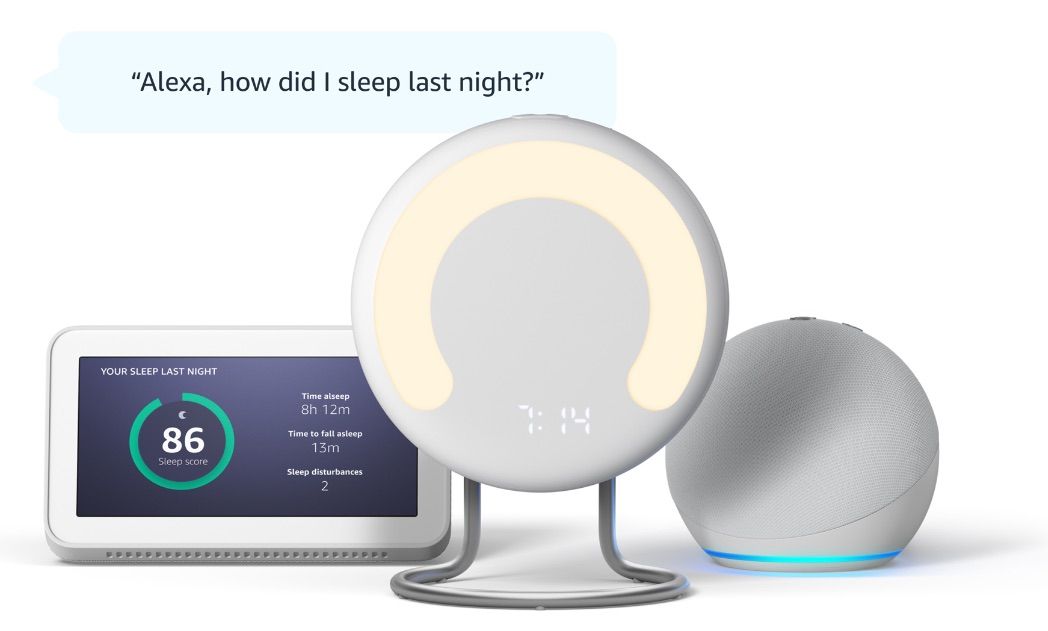Looking for a new device to get deeper into wellness technology? Perhaps you're eyeing Amazon's Halo Rise, released in late 2022, and wondering if it's worth your cash. Is this an exciting new tool that you'll love using to monitor your sleep or a silly gimmick? Let's examine the Halo Rise to help you make the right call on whether or not to buy.
How the Amazon Halo Rise Works
There are three key features that Amazon says distinguish the Amazon Halo Rise from other products on the market: contactless sleep monitoring using radio waves, wake light integration, and environmental data monitoring.
Unlike the wearable Amazon Halo View device, which can track movement, sleep, and even your tone of voice, the Amazon Halo Rise automatically starts tracking your sleep as soon as you get into bed. It uses radar—a no-contact, low-energy sensor that emits and receives a low-power radio signal—to track and monitor your movement and respiratory patterns to determine when you're in bed. The device also uses the sensor to measure movement and distance.
However, using radio waves to monitor movement is insufficient to determine how well you're sleeping or when you should wake up to feel as rested as possible. That's why Amazon has gone one step further. The Halo Rise not only monitors the rising and falling of your body during sleep but also tracks sleep stages throughout the night by leveraging a large clinical data set to analyze how the patterns of breathing match up with sleep stages.
It's important to remember that the Halo Rise is only designed to track one person's sleep. If your dog jumps on the bed or if you share your bed with another person, the device will only detect you. However, it is possible to use two devices to track to separate people in the same bed.
You may be skeptical about the accuracy of sleep tracking based on radio waves. Amazon's press release claims that its machine learning algorithm has been trained and validated against polysomnography, a type of sleep study and a diagnostic tool used in sleep medicine that records brain waves, blood oxygen levels, heart rate, breathing, and eye and leg movements using electrodes placed on a person's the head.
The Halo Rise attempts to replicate the depth of this data using ambient sensors at home, potentially making this type of information more accessible and useable for more people.
Halo Rise Smart Alarm and Wake-Up Light
Other features of the Halo Rise include the device's smart alarm, which monitors your sleep stages throughout the night and is designed to wake you up at the ideal time—when it'll feel easiest for you to wake up.
The smart alarm works differently than most other alarms. Rather than beeping, buzzing, or playing your favorite song at a specific hour and minute, the device senses when you are in the lightest stage of sleep within a set "wake window," which starts 30 minutes before the scheduled alarm. This maximizes the amount of time you are able to spend in bed while giving you an opportunity to wake up when your body and mind are most ready to get up.
To improve the waking experience, the smart alarm is supported by the device's built-in wake-up light, which Amazon says simulates the colors and gradual brightening of a sunrise. This creates a natural and gentle wake experience that leaves you feeling refreshed and ready to start the day. For those extra heavy sleepers, there is also an audible smart alarm just in case.
As soon as you're finished sleeping, the Halo Rise will provide a detailed sleep summary. The summary includes a visual representation of time spent in each sleep phase—REM, light, and deep sleep—as well as a proprietary sleep score and information about your sleep environment, including the temperature, humidity, and ambient light. These details offer a glimpse into the conditions that give rise to your deepest and most restful sleep, helping you identify which environmental variables you might need to change to improve the quality and duration of your sleep.
Unsurprisingly, Amazon's new smart device is compatible with many of the company's other smart home products. By connecting the Halo Rise to a compatible Echo device, you can ask Alexa how well you slept. You can also sync the Halo Rise with Alexa to be woken up by your favorite song or to turn on other smart lights in your living space.
Amazon's Approach to Privacy
Smart home technology can introduce security risks, so privacy should always be a concern when devices in your home collect private information. Amazon says that privacy is a key pillar of the Halo Rise experience. The company claims to never sell health data that's tied directly to you, and you can download or delete your health data directly from the Halo app at any time you want.
In terms of hardware, there is no camera or microphone on the device. Further, the Halo Rise is designed to only track the person sleeping closest to it. Although one of the benefits of the device is that it automatically begins tracking a user's sleep patterns as soon as they enter the bed, customers also have the option to put it on standby. In that mode, the device will no longer detect the presence of a person.
Should You Buy an Amazon Halo Rise?
Sleep trackers promise to help users better understand their sleep and the way outside circumstances—such as their sleep environment and daily habits—affect the quality of their rest.
It's unclear if sleep trackers such as the Halo Rise will be able to provide comparable results to polysomnography studies performed using specialized equipment in clinics. However, being more mindful of how you're sleeping and the circumstances that may affect your sleep can help you adjust your behavior to rest more deeply. Of course, before you consider buying the Halo Rise, you can also choose one of the other sleep trackers on the market, each of which offers a suite of features that address different needs and preferences.



